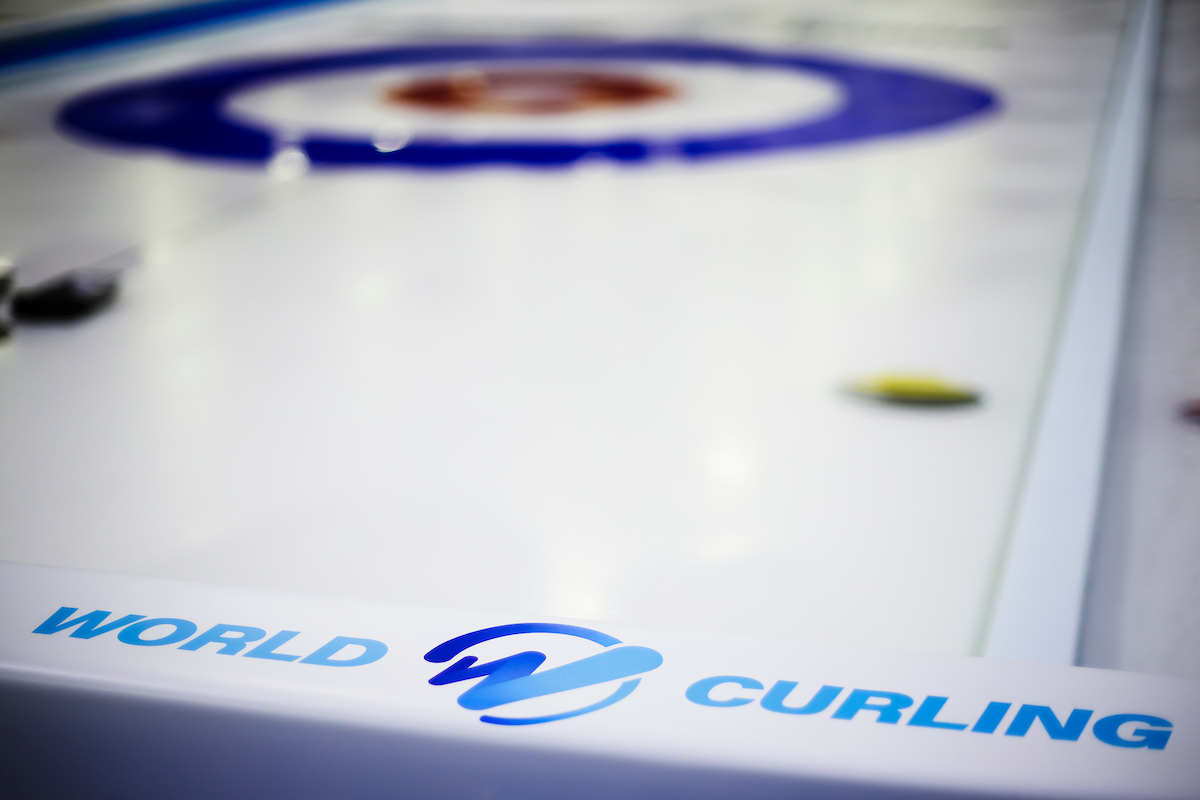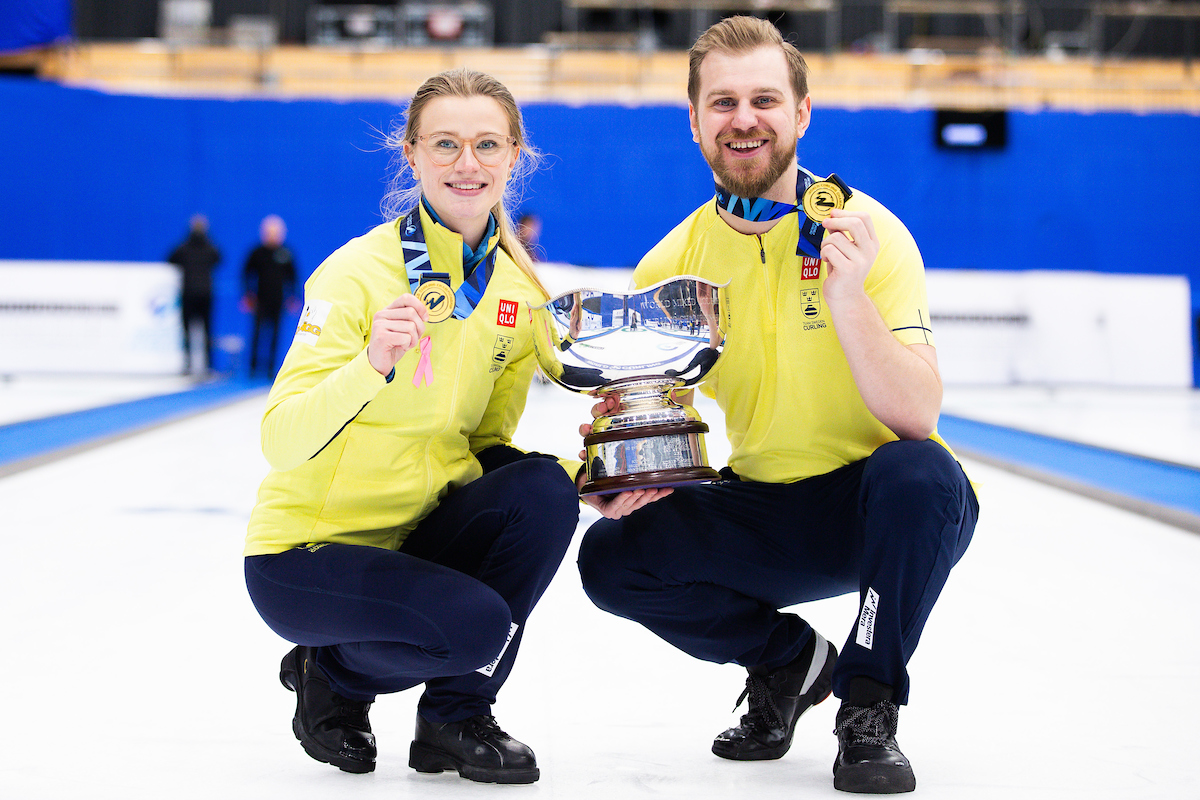24 November 2023
Alternate reality — Jennie Waahlin and her decision to put her life first
We meet Jennie at the spectator stands after the round-robin match with Italy. The opponent proved stronger, succeeding 9-8, however, she maintains a positive outlook, “It was a tight game, lots of points back and forth, but Italy were on top today.”
Jennie Waahlin, 26, is making her second visit to Aberdeen this autumn. She is alternate for Isabella Wranaa’s Swedish team, but last month she was playing for Sweden at the World Mixed Championship, and taking gold.
In winning, she added that medal to her significant medal collection which, of course, includes Olympic gold from Pyeongchang as alternate for Team Hasselborg.
In her role as alternate at this event, Jennie has been on the ice only once, for the game against Germany, which ended in an 8-5 victory for Sweden.
Jennie explains, “Almida [De Val] had a cold and felt a little sick. She wanted to save her strength for the possible play-off. And we as a team thought that it was a good game to try out me on the field.”
While Jennie was happy to step onto the ice for a major team, she also confirms that she has left her competitive sports career behind.
“I have retired from competitive curling in the sense that I don’t play on a team anymore.”
She explains, “Seeing other people quitting, got me thinking… how could life look outside the ice?”
Jennie acknowledges that the decision was not easy; she thought about it repeatedly. Even though her social circle and family — her father is a well-known curler — are connected to curling, she kept this decision to herself, “I didn’t talk to many people about it. And not my family either, until I made the decision.”
She admitted, “They were quite surprised.”

Confidently and openly, Jennie speaks about the reasons: the conditions in which a competitive-level athlete exists leave no room for anything other than sports.
She was no longer willing to agree to this. “About five hours of the day to curling — pretty much. At the same time, I was studying to become a nurse and it was also getting affected. I didn’t think it was such a high quality of life. It was stressful for me. I faced a decision to do either curling or become a nurse and have more time with my family and with my significant other.”
Jennie admits that the expectations for her career were very high, and this couldn’t help but exert pressure.
“I always thought that if I went on and continued playing, the team would go far and become the best team in Sweden for a long time. But the decision was more about how I wanted my life to be. And right there, I felt that putting in all the hours curling wasn’t what I wanted.”

Now, Jennie is content to be an alternate, enjoying watching matches from the bench alongside coach Margaretha Sigfridsson and national coach Fredrik Lindberg.
But this situation in no way, contradicts that she still loves curling and still loves competition.
Being an alternate means never knowing if the chance to step onto the ice will arise. This, in turn, triggers a discussion about the role of alternates in a team.
Can introducing mandatory quotas for an alternate be a solution? Thinking about this dilemma, she does not see any rule changes being productive.
“Personally, I would not recommend any changes, I am happy to see the girls play and win.”
Reflecting on her decision and her new situation, Jennie thinks it’s hard to know when to leave, “The common thing is playing until you’re the best and then quit or when you get older, but I think you should always ask yourself where I see myself in one year, two years or five years and how is my life right now.”
And Jennie Waahlin is content with what she’s doing in curling now.
“I don’t think people will see me playing with the team on the tour again, but they might see me as an alternate or on mixed championships, or just in my home club. Or as a coach someday. We’ll see. I don’t know what the future can bring, but I will always try to do everything, that would make me happy.”
Written by trainee writer Valerii Sazonov
Engage with the World Curling Federation during the Le Gruyère AOP European Curling Championships 2023 on X, Instagram, TikTok and Facebook and by searching the hashtags #curling and #ECC





